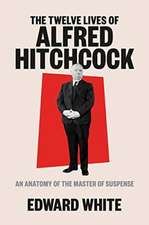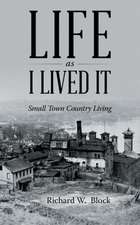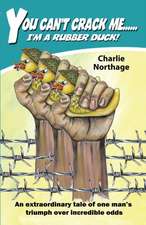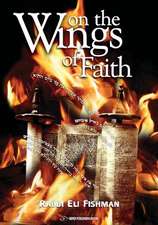Diary of a Man in Despair: New York Review Books Classics
Autor Friedrich Reck Richard J. Evans Traducere de Paul Rubensen Limba Engleză Paperback – 11 feb 2013
Din seria New York Review Books Classics
-
 Preț: 88.86 lei
Preț: 88.86 lei -
 Preț: 98.73 lei
Preț: 98.73 lei - 16%
 Preț: 79.25 lei
Preț: 79.25 lei -
 Preț: 77.73 lei
Preț: 77.73 lei -
 Preț: 124.55 lei
Preț: 124.55 lei -
 Preț: 98.73 lei
Preț: 98.73 lei -
 Preț: 83.30 lei
Preț: 83.30 lei -
 Preț: 182.08 lei
Preț: 182.08 lei -
 Preț: 102.47 lei
Preț: 102.47 lei -
 Preț: 76.46 lei
Preț: 76.46 lei -
 Preț: 174.64 lei
Preț: 174.64 lei -
 Preț: 110.73 lei
Preț: 110.73 lei -
 Preț: 119.57 lei
Preț: 119.57 lei -
 Preț: 94.01 lei
Preț: 94.01 lei -
 Preț: 119.36 lei
Preț: 119.36 lei -
 Preț: 101.24 lei
Preț: 101.24 lei -
 Preț: 85.97 lei
Preț: 85.97 lei -
 Preț: 142.67 lei
Preț: 142.67 lei -
 Preț: 102.25 lei
Preț: 102.25 lei -
 Preț: 103.29 lei
Preț: 103.29 lei -
 Preț: 113.30 lei
Preț: 113.30 lei -
 Preț: 100.59 lei
Preț: 100.59 lei -
 Preț: 126.41 lei
Preț: 126.41 lei -
 Preț: 107.40 lei
Preț: 107.40 lei -
 Preț: 174.03 lei
Preț: 174.03 lei -
 Preț: 107.44 lei
Preț: 107.44 lei -
 Preț: 89.27 lei
Preț: 89.27 lei -
 Preț: 85.34 lei
Preț: 85.34 lei -
 Preț: 90.09 lei
Preț: 90.09 lei -
 Preț: 96.27 lei
Preț: 96.27 lei -
 Preț: 99.60 lei
Preț: 99.60 lei -
 Preț: 85.16 lei
Preț: 85.16 lei -
 Preț: 127.42 lei
Preț: 127.42 lei -
 Preț: 87.20 lei
Preț: 87.20 lei -
 Preț: 136.91 lei
Preț: 136.91 lei -
 Preț: 105.17 lei
Preț: 105.17 lei -
 Preț: 161.86 lei
Preț: 161.86 lei -
 Preț: 90.72 lei
Preț: 90.72 lei -
 Preț: 88.86 lei
Preț: 88.86 lei -
 Preț: 94.83 lei
Preț: 94.83 lei -
 Preț: 120.63 lei
Preț: 120.63 lei -
 Preț: 133.18 lei
Preț: 133.18 lei -
 Preț: 95.45 lei
Preț: 95.45 lei -
 Preț: 97.50 lei
Preț: 97.50 lei -
 Preț: 81.66 lei
Preț: 81.66 lei -
 Preț: 111.96 lei
Preț: 111.96 lei -
 Preț: 100.18 lei
Preț: 100.18 lei -
 Preț: 75.23 lei
Preț: 75.23 lei -
 Preț: 91.13 lei
Preț: 91.13 lei -
 Preț: 94.67 lei
Preț: 94.67 lei
Preț: 97.72 lei
Nou
Puncte Express: 147
Preț estimativ în valută:
18.70€ • 19.47$ • 15.81£
18.70€ • 19.47$ • 15.81£
Carte disponibilă
Livrare economică 17 februarie-03 martie
Livrare express 31 ianuarie-06 februarie pentru 30.56 lei
Preluare comenzi: 021 569.72.76
Specificații
ISBN-13: 9781590175866
ISBN-10: 1590175867
Pagini: 244
Dimensiuni: 134 x 204 x 15 mm
Greutate: 0.28 kg
Editura: NEW YORK REVIEW OF BOOKS
Seria New York Review Books Classics
ISBN-10: 1590175867
Pagini: 244
Dimensiuni: 134 x 204 x 15 mm
Greutate: 0.28 kg
Editura: NEW YORK REVIEW OF BOOKS
Seria New York Review Books Classics
Notă biografică
Friedrich Reck (1884ߝ1945) was born Friedrich Percyval Reck in Masuria, East Prussia, the son of a prosperous conservative politician and landowner. Having initially complied with his father’s wishes to pursue a military career, he left the army to begin medical studies. By the beginning of the First World War, for which he was ruled unfit to serve, he had begun work as a full-time theater critic and travel writer. In the following decades he became a well-known figure in Munich society, the author of both literary historical novels and popular entertainments including Bomben auf Monte Carlo (Bombs on Monte Carlo), a best-selling comic novella and the basis of a hit musical film starring Peter Lorre. In October 1944 he was arrested for the first time; in December of the same year the Gestapo returned to detain him again; in January 1945 he arrived at the Dachau concentration camp, where he was to die shortly after.
Paul Rubens (1927ߝ2003), a self-educated native New Yorker, mastered the German language as a member of the U.S. occupation forces after World War II .
Richard J. Evans is Regius Professor of History and president of Wolfson College, Cambridge. He is the author of The Third Reich at War.
Paul Rubens (1927ߝ2003), a self-educated native New Yorker, mastered the German language as a member of the U.S. occupation forces after World War II .
Richard J. Evans is Regius Professor of History and president of Wolfson College, Cambridge. He is the author of The Third Reich at War.
Recenzii
“Very, very rarely one comes across a book so remarkable and so unexpectedly convincing that it deserves more to be quoted than to be reviewed…. I beg you to read this bitterly courageous book by as good a German as one could well imagine.” —Frederic Raphael, The Sunday Times
“It is stunning to read, for it is not often that invective achieves the level of art, and rarer still that hatred assumes a tragic grandeur.” —The New York Times
“Observations set down with passion, outrage, and almost unbearable sadness. . . astonishing, compelling, and unnerving.” —The New Yorker
“In his visceral loathing of the Nazis, Reck was not, of course, unique. From our perspective, however, he had one great advantage over most of his like-minded friends: he possessed the makings of a great diarist. True, he was not at the centre of things, but he knew the world and had contacts in it. He was something of a connoisseur of rumours, collecting and savouring stories about the latest Nazi scandal or atrocity and adding to them his own trenchant reflections. And if he was a slightly gullible listener, he was a very acute observer.’ —The Financial Times
“Unlike many memoirs of the Nazi period, this one is not a totally gloomy account of persecution, brutality and horrors. The dominating quality is its tough exuberance and (often black) satirical humor. From a great height of aristocratic disrelish Fritz Reck-Malleczewen looks down on the Nazis as lower middle class scum, vengefully greedy for power, with Hitler as their avatar, at once sinister and ridiculous’ —The Wall Street Journal
“It is stunning to read, for it is not often that invective achieves the level of art, and rarer still that hatred assumes a tragic grandeur.” —The New York Times
“Observations set down with passion, outrage, and almost unbearable sadness. . . astonishing, compelling, and unnerving.” —The New Yorker
“In his visceral loathing of the Nazis, Reck was not, of course, unique. From our perspective, however, he had one great advantage over most of his like-minded friends: he possessed the makings of a great diarist. True, he was not at the centre of things, but he knew the world and had contacts in it. He was something of a connoisseur of rumours, collecting and savouring stories about the latest Nazi scandal or atrocity and adding to them his own trenchant reflections. And if he was a slightly gullible listener, he was a very acute observer.’ —The Financial Times
“Unlike many memoirs of the Nazi period, this one is not a totally gloomy account of persecution, brutality and horrors. The dominating quality is its tough exuberance and (often black) satirical humor. From a great height of aristocratic disrelish Fritz Reck-Malleczewen looks down on the Nazis as lower middle class scum, vengefully greedy for power, with Hitler as their avatar, at once sinister and ridiculous’ —The Wall Street Journal


















